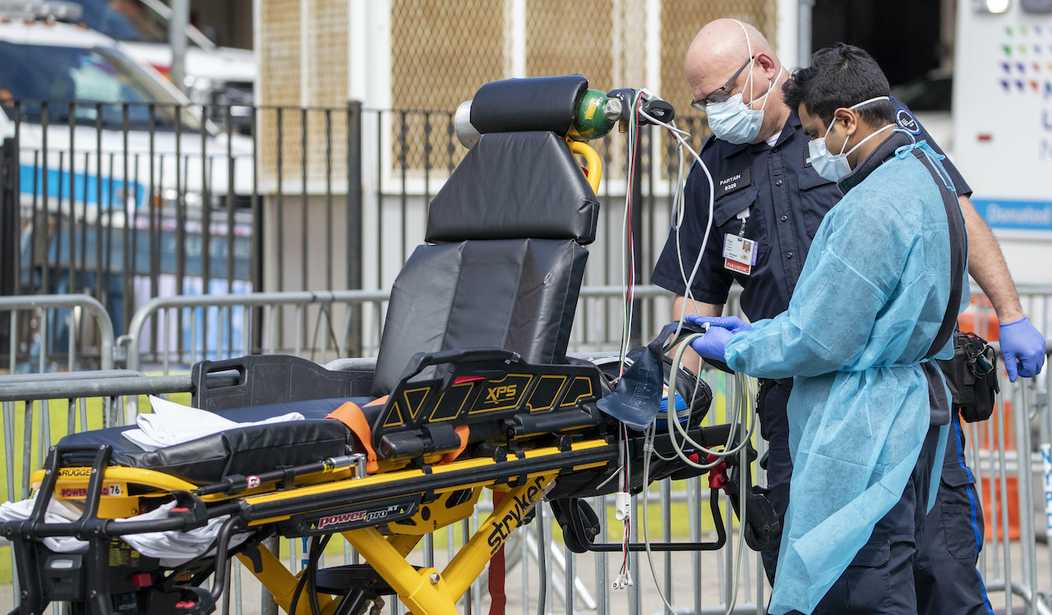Romans 8:28 says “all things work together for good, for those who are called according to his purpose.” How could the effects of COVID-19 possibly be good? Many are dying. Many more face disruptions in their lives and careers, financial hardships, family stress, boredom, the list of difficulties goes on.
Understanding the deaths is a hard question, but Jesus didn’t dodge it when asked about 18 who suddenly died as “the tower in Siloam fell and killed them: Do you think that they were worse offenders than all the others who lived in Jerusalem? No, I tell you, but unless you repent you will all likewise perish” (Luke 13:4). Every dead person is a missionary and an evangelist, reminding us that we must repent if we don’t want to perish in this life or the next.
This is not sufficient for a person mourning a loved one, but that’s a topic for another day. It’s not as hard to understand how trouble affects survivors. The Bible offers evidence: Noah, Abraham, Jacob, Joseph, Moses, David, Jeremiah, Daniel, Jonah, Peter, Paul, and just about every other person called according to God’s purpose, faced disruption of some kind. They benefited from unexpected hardship, but Ahab, Judas, and others tumbled into trouble and turned further away from God. Jesus, as Simeon told Mary, was “appointed for the fall and rising of many in Israel” (Luke 2:34).
In American history, the American Revolution led to the rise of George Washington and the fall of Benedict Arnold. The primary benefit of the Civil War, which cost 600,000 lives, was the freeing of five million slaves, but southern novelist Walker Percy pointed out a secondary benefit: “Why has the South produced so many good writers? Because we got beat.” The Depression and World War II expanded misery but also produced “the Greatest Generation.”
Recommended
Walker Percy’s characters have one main enemy: everydayness, being stuck in a routine. They often have one major opportunity—may be a hurricane, maybe tuberculosis that moved Percy from a planned medical career into writing. Quadriplegic Joni Eareckson Tada, decades after her diving accident, reflected, “Had I not broken my neck I’d probably be on my second divorce, maxing out my husband’s credit cards.” Percy and Tada amid crisis turned to Christ.
Will the pandemic work for the rising of many, or the fall of more? God only knows. Some early signs are worth pondering: Copenhagen Professor Jeanet Bentzen analyzed internet searches for prayer in 75 countries and reported preliminary findings that “search intensity for prayer doubles for every 80,000 newly registered cases of COVID-19. … Google searches on prayer have skyrocketed.”
That’s not surprising. We have more time to pray, more time to read the Bible, and more time to think about our own sin. We have more time to realize, “What can make me whole again? Nothing but the blood of Jesus.” But the flip side is also true: What can make me sneer again? Misuse of the name of Jesus.
When news spreads of Christians acting self-sacrificially to love our neighbors, that encourages a worried world to check out the gospel and hear the good news. But Christians who harm their neighbors by ignoring medical advice place millstones around the necks of those who might otherwise see Christian love and say, “I need and want some of that.”
This does not mean that we seek popularity by dodging what the Bible clearly teaches or idolizing “scientific” pronouncements that go beyond what scientists can test. But the Bible has clear teaching about quarantining disease carriers and preserving life. We can also learn from a great Dutch theologian, Abraham Kuyper, who developed a useful approach called “sphere sovereignty.” Churches have authority over religious activities, but governors have authority for public safety. If a governor discriminates against churches he’s overstepping his sphere, but if he’s even-handed he is in his sphere.
Yes, real threats to religious liberty exist and must be opposed, but let’s be careful not to cry wolf. Instead, let’s save lives and help save souls.

























Join the conversation as a VIP Member